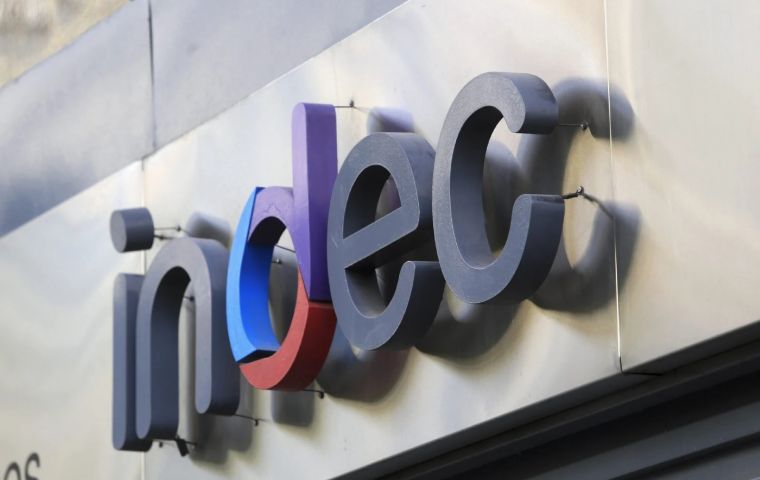MercoPress. South Atlantic News Agency
Argentina: Inflation in March hits 3.7%
 The Indec's figures were worse than Milei's Government had expected
The Indec's figures were worse than Milei's Government had expected Argentina's Consumer Price Index (CPI) for the month of March reached 3.7%, the National Institute of Statistics and Census (Indec) reported Friday. These figures marked a sharp increase from February's 2.4% and January's 2.2%. The rise was driven primarily by higher food prices, particularly meat and vegetables, with public services also playing a role. Internannual inflation stood at 66.9% and 4.7% so far in 2025.
Analysts had projected March inflation to range between 2.5% and 3%, with the Central Bank's Market Expectations Survey (REM) estimating 2.6%. Consulting firms like Orlando J. Ferreres projected up to 2.9%, citing rises in education (5.4%), food and beverages (4.9%), and clothing (4%). In the City of Buenos Aires, inflation was slightly lower at 3.2%, driven by education, food, and clothing, accumulating 8.6% for the year.
Looking ahead, April projections are concerning due to persistent food price increases, with weekly rises of 0.8% to 0.9% in early April pushing the three-month average inflation rate from 1.3% in January to 3.9%.
The Libertarian Government of President Javier Milei is eagerly awaiting the outcome of Friday's International Monetary Fund (IMF) board meeting, which is expected to approve a US$ 20 billion agreement. This money would allow Economy Minister Luis Toto Caputo to even up the Central Bank's (BCRA) reserves while keeping the US dollar from escalating against the Argentine peso as a freer exchange market appears on the radar.
Government sources quoted by local media in Buenos Aires admitted Friday's numbers were worse than expected but blamed it on March's traditional volatility.




Top Comments
Disclaimer & comment rulesNo comments for this story
Please log in or register (it’s free!) to comment. Login with Facebook